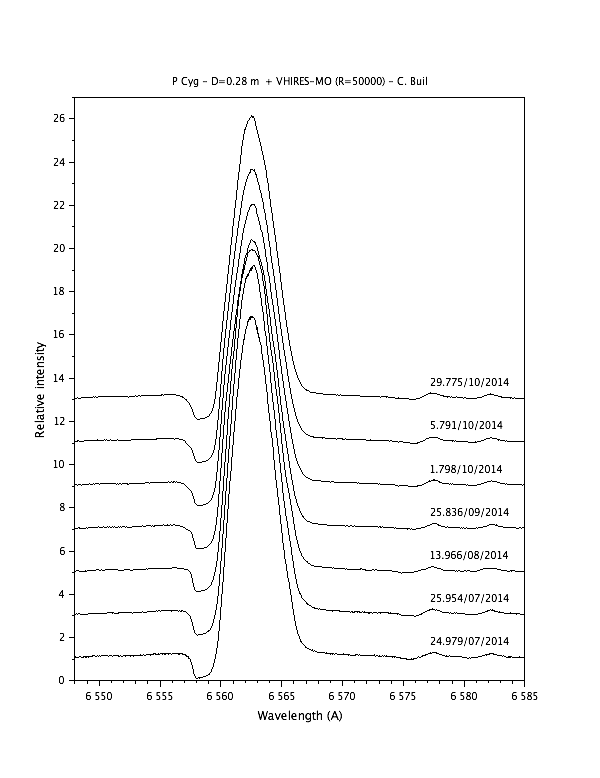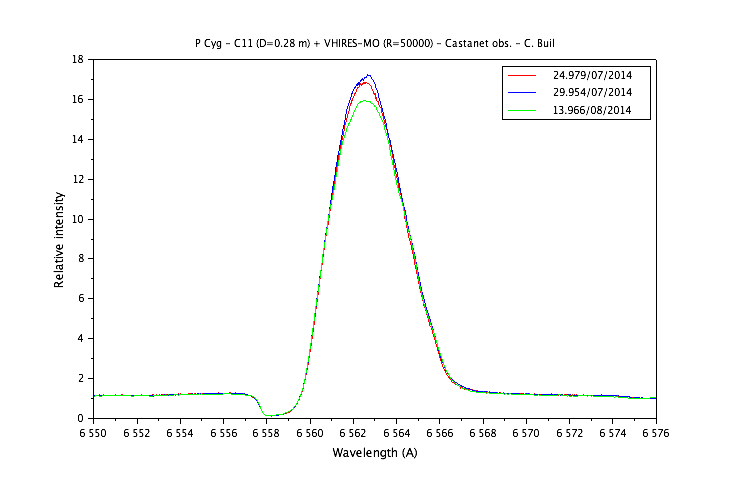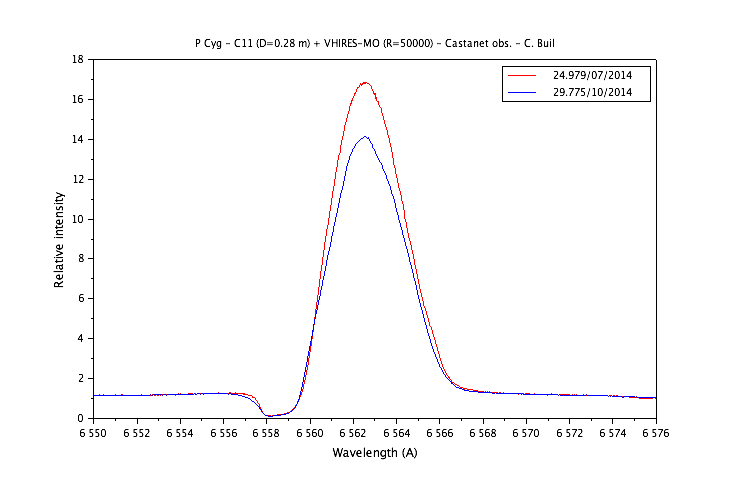Following the observation of P cygni by all the spectrographs this summer during the OHP workshop, where I observed the star with SOPHIE, I renew the observation last night with the HARPS-N spectrograph. This spectrograph is mounted at the 3.6-m telescope TNG, the italian telescope at La Palma. It's a copy of the ESO one, mounted at the 3.6-m telescope at La Silla, and has a resolution of 110 000.
We just used one minute to secure a high-resolution, high signal-to-noise spectrum of P Cygni.
For those who are interested, you can find this spectrum here:
https://www.dropbox.com/s/m7z163pugitc1 ... .fits?dl=0
Below is a comparison of the H-alpha line between the SOPHIE and the HARPS-N spectra. Of course, the difference is not really impressive. The reason is that the shape of the P-cygni profile is already resolved at the resolution of SOPHIE (R=75k). The comparison with the VHIRES at R=50k would produced also similar results.
Pro/Am collaboration could also be Pros observing for Ams
cheers,
Alex


